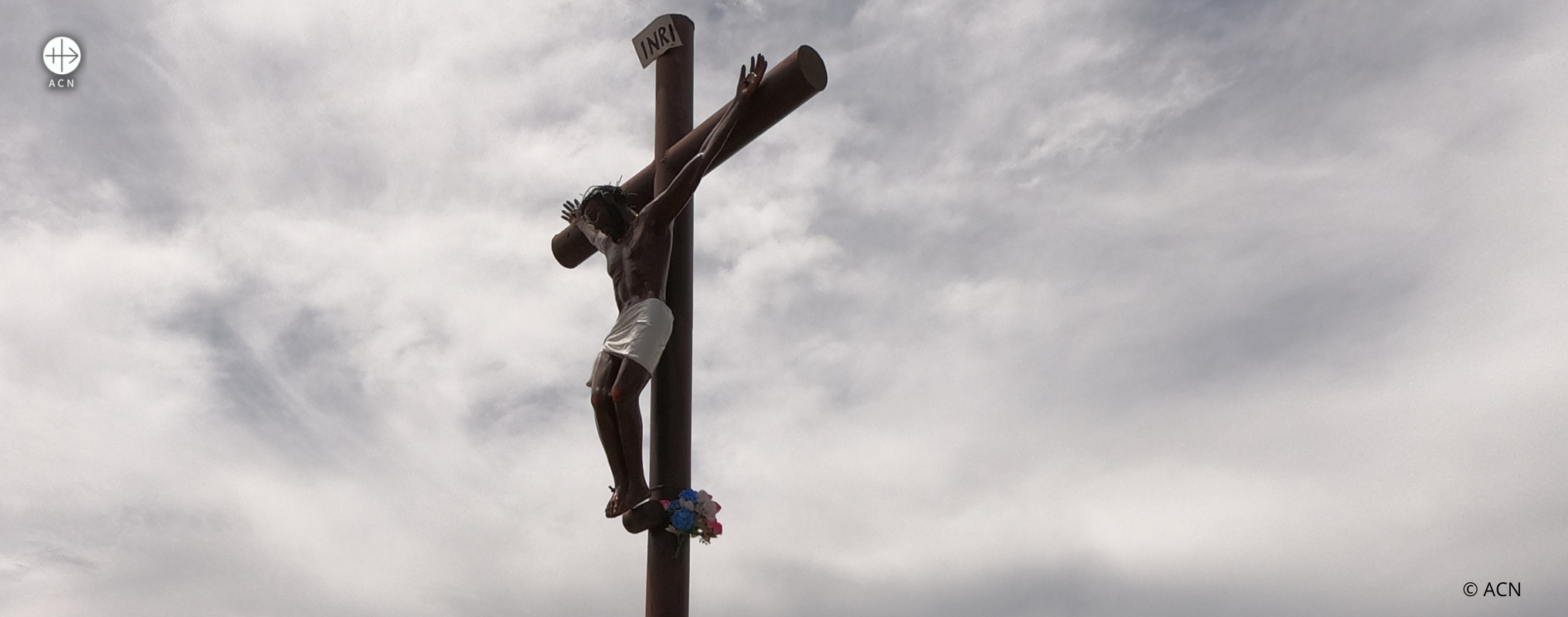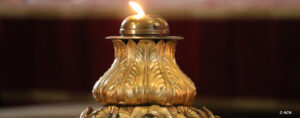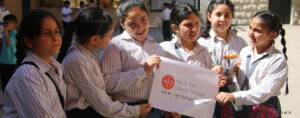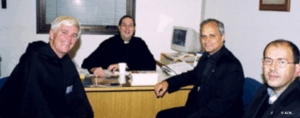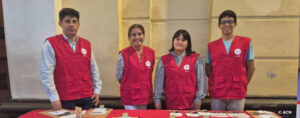Burkina Faso
Churches must be guarded so that Christians can pray in safety. Catholic nurses disguise themselves as Muslims so that they can travel to villages to treat patients. Christian girls wear full-face veils to go to school, so as not to be kidnapped. To resist the jihadists in Burkina Faso requires much courage, explains Father Wenceslao Belem, who spoke about the topic at La Almudena Cathedral, in Madrid, at an event organized by Aid to the Church in Need Spain (ACN).
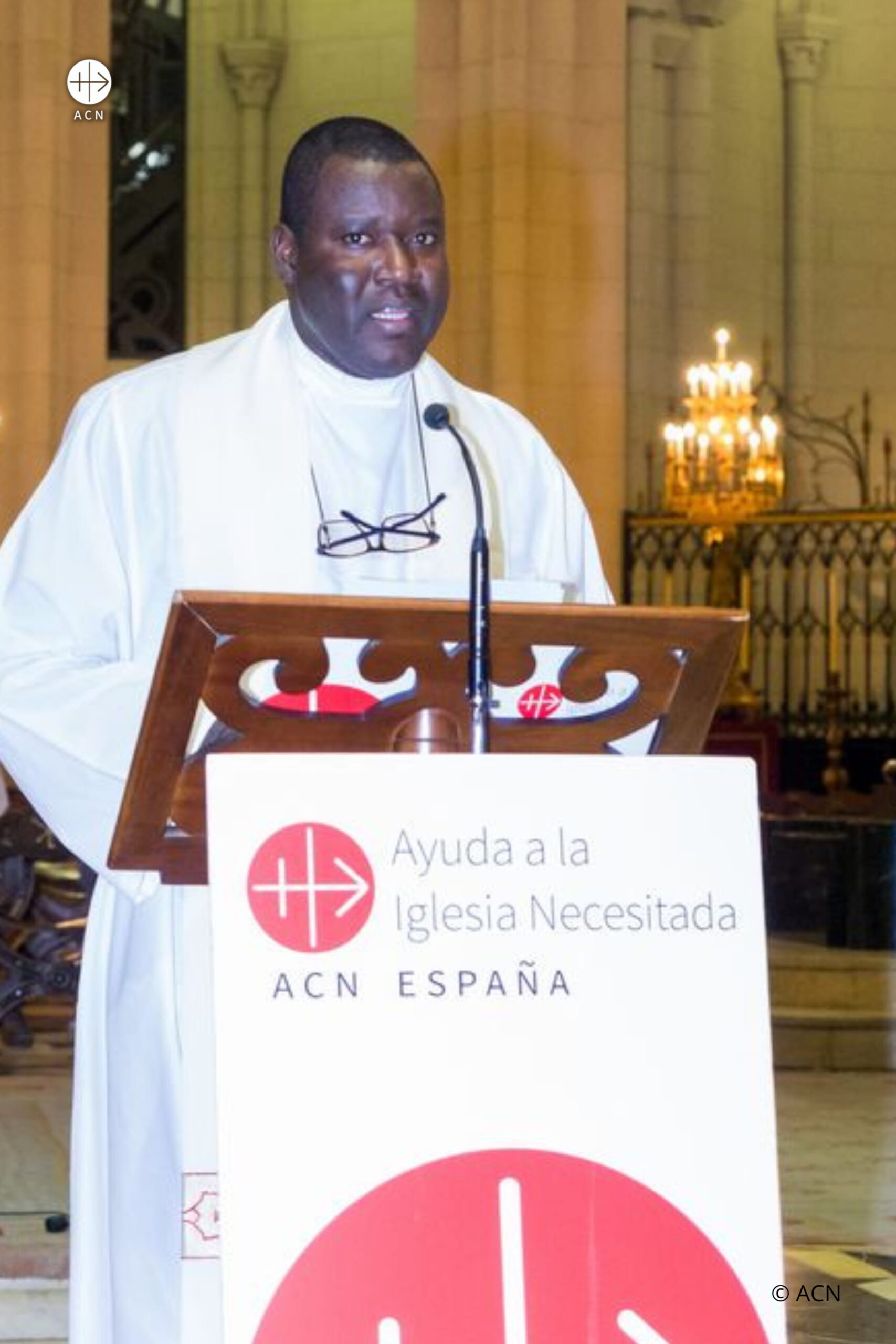
“Since the first attacks in 2015, the situation for Christians to practice their religion freely has changed.” Father Wenceslao Belem’s words at La Almudena Cathedral, in Madrid, could not have been clearer. The priest was invited to speak at a prayer vigil organized by the Spanish office of ACN, and shared stories of a country where Christians live under constant threat, with no freedom, subjected to brutal violence by groups of jihadists who aim to impose Islam as the only religion and are gradually submitting society to their rules and impositions.
“Since the terror began, over 2,000 schools have been closed. They attack modern schools and turn them into Koranic schools. They attack Catholic schools, killing or abducting Christians, especially catechists, priests and committed laypeople, and they want to force women to wear full-face veils, regardless of their religion. Many Christian girls have to wear veils to school in order to avoid being branded, maligned, beaten or even kidnapped.”
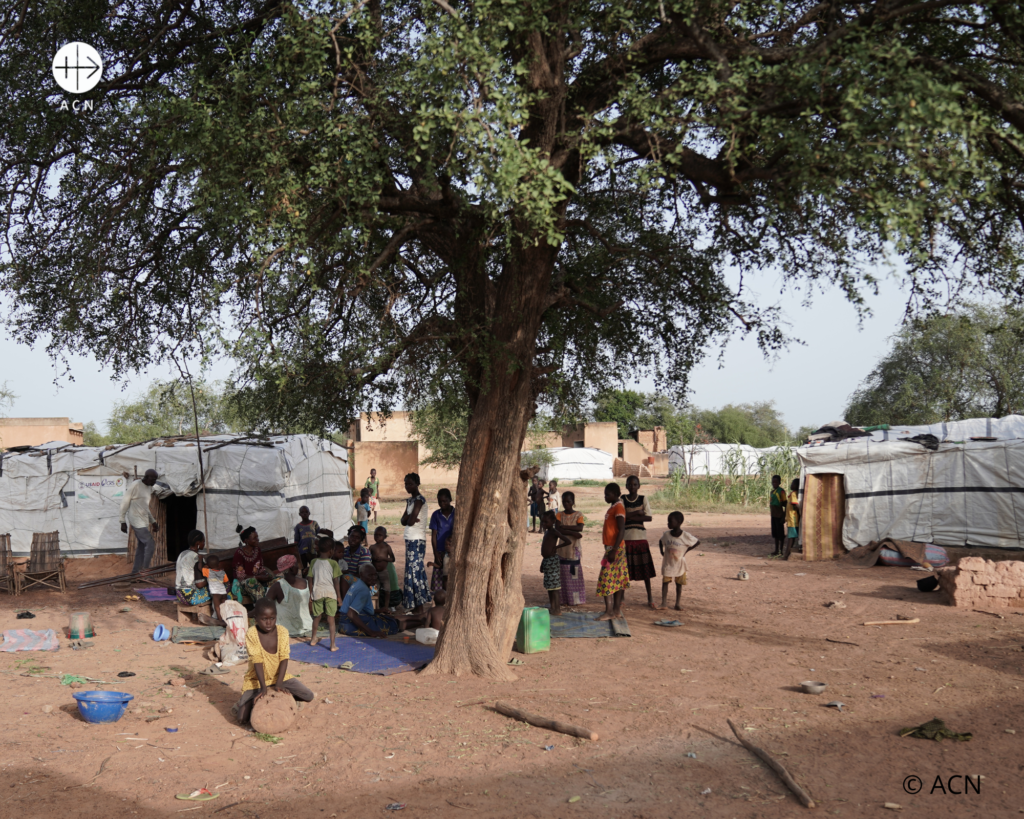
The threat is omnipresent, to the extent that “on Sundays and feast days, the churches have to be guarded by police, military or volunteers so that we can pray and celebrate Holy Mass in peace,” Father Wenceslao explained. “The terrorists mine the roads that lead to the villages to prevent us and the military from having access. That way they can continue to isolate the populations, and subject them to hunger or deprivation if they refuse to convert to Islam.”
Fifty percent of the territory in Burkina Faso is occupied by terrorist groups, and in many other places it is very dangerous to visit the villages to provide pastoral support. “Before going out on pastoral missions, we pray intensely, receive the sacraments, and go to confession, in case we do not return.”
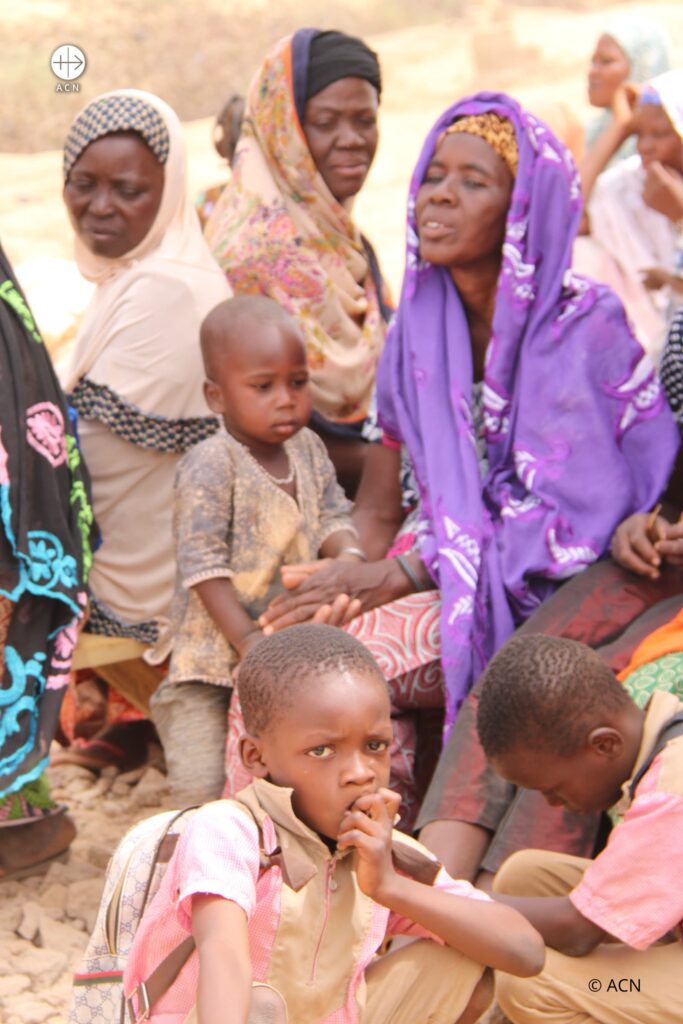
During his testimony, Father Wenceslao described a country that has fallen under the influence of a jihadist terror that has already crossed into many of the countries that border Burkina Faso, such as Mali, Niger, and Benin. Around 60% of Burkina Faso’s population is Muslim. Catholics represent less than half of that, at about 19%, and have increasingly been driven to listen to Mass and catechesis over the radio, since it has become almost impossible to reach parish churches.
“In Burkina Faso, we currently have thousands of closed schools, many parishes are inactive, and there are over 1.7 million internally displaced,” he added. Facing this threat requires both courage and imagination, as can be seen by the nurses who continue to care for people who need medical attention and who are often left in villages, with no resources. “When we see these Catholic nurses entrusting themselves fully to God’s mercy, dressing themselves as Muslims to cross dangerous and terrorist-infested territory to save lives and care for the ill who cannot escape, we feel encouraged and say that it is God who saves,” Father Wenceslao said during the ACN event.
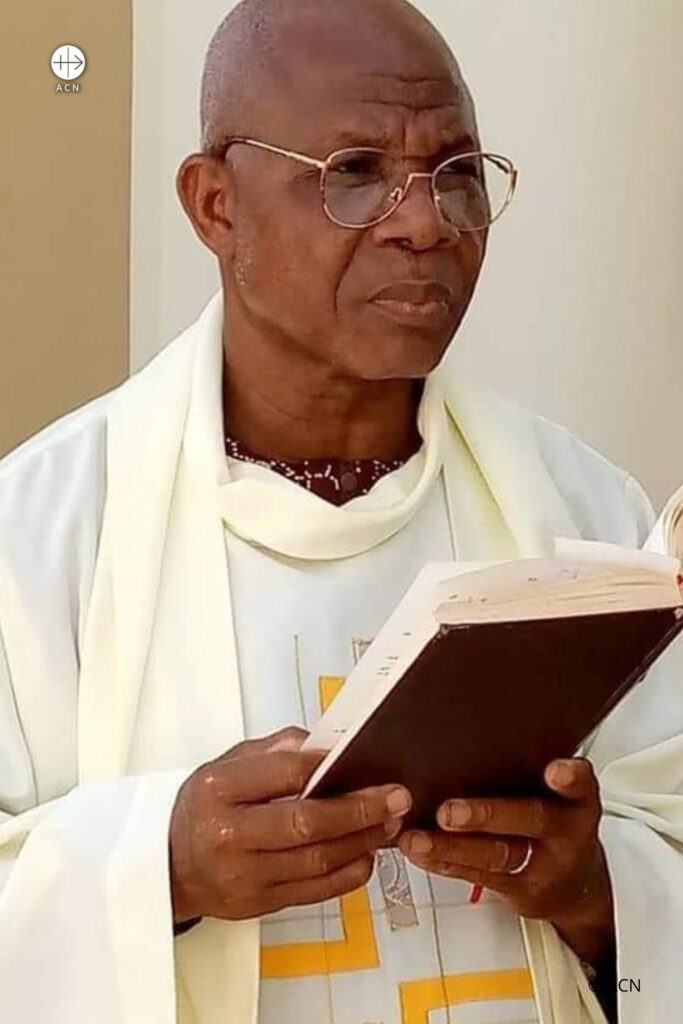
A hotbed of martyrs
The priest’s testimony was also marked by the story of Father Jacques Yaro Zerbo, who was murdered on January 2, 2023, as he was driving to a village for the funeral of a catechist. “He was supposed to travel with a parishioner, but at the last minute he decided to go alone. He was stopped by terrorists on the way. Knowing him, and aware that his faith would not let him be intimidated, they took him to a few meters from the village chapel, shot him, and left with his car. The Christians heard the noise and went to see, discovering Father Jacques’ body.”
The Church of Burkina Faso has become a hotbed of martyrs, many of whom were remembered at La Almudena Cathedral. “In March 2019, Fr. Joël Yougbaré, parish priest of Djibo, in the Diocese of Dori, was kidnapped, and we have not heard of him since. That same year, in May, Fr. Siméon Yampa was murdered along with five parishioners during Sunday Mass. Another priest, Spanish Missionary Antonio César Fernández, was also killed [in February]. Other parishioners have been kidnapped. Some were released; others not.” They are all fondly remembered, in the certainty that their lives and sacrifices were not in vain.
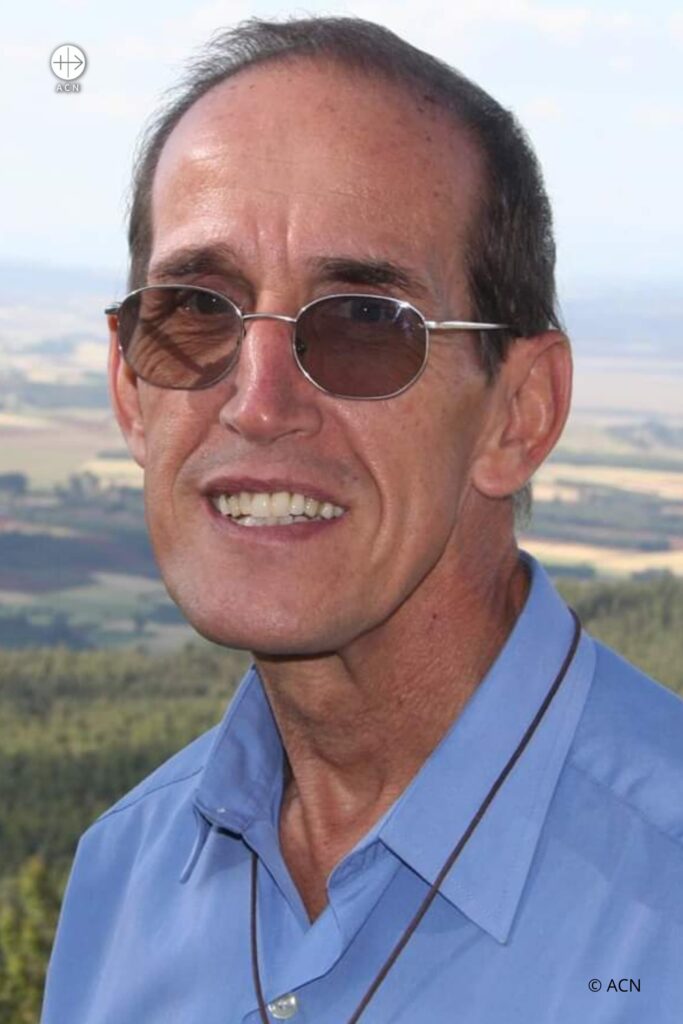
Prayer, the silent but effective weapon
During his testimony, Father Wenceslao Belem thanked ACN for the help it has been providing to the persecuted church in his country and assured that the Christians of Burkina Faso will resist the violence and terrorism with the only weapon they have: prayer, and a spirit of peace.
“Thank you to Aid to the Church in Need, which supports resilient projects for food support for the victims of religious violence, Islamic-Christian dialogue, and formation of priests to better serve the people of God, persecuted for their faith. We are a persecuted Church, but thanks to you we are not forgotten. We know that you support us with prayer. With God there is always salvation!” he said.
“We believe that evil will not have the last word. We continue, with hope, to fight against terrorism with the only ‘Kalashnikov’ we have, our invisible but very effective weapon: prayer, the sacraments, Holy Mass, and the Rosary. Dying for love of God and of others destroys the roots of the forces of evil.”

